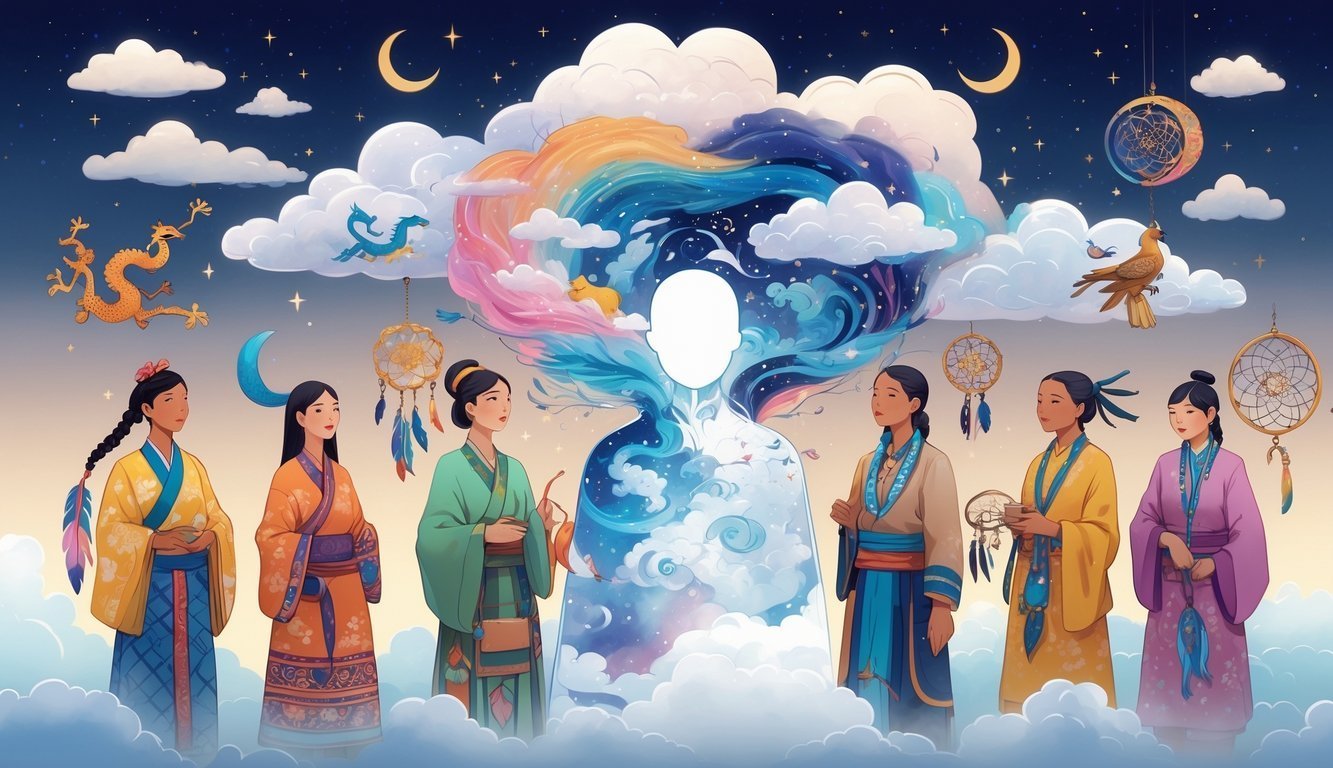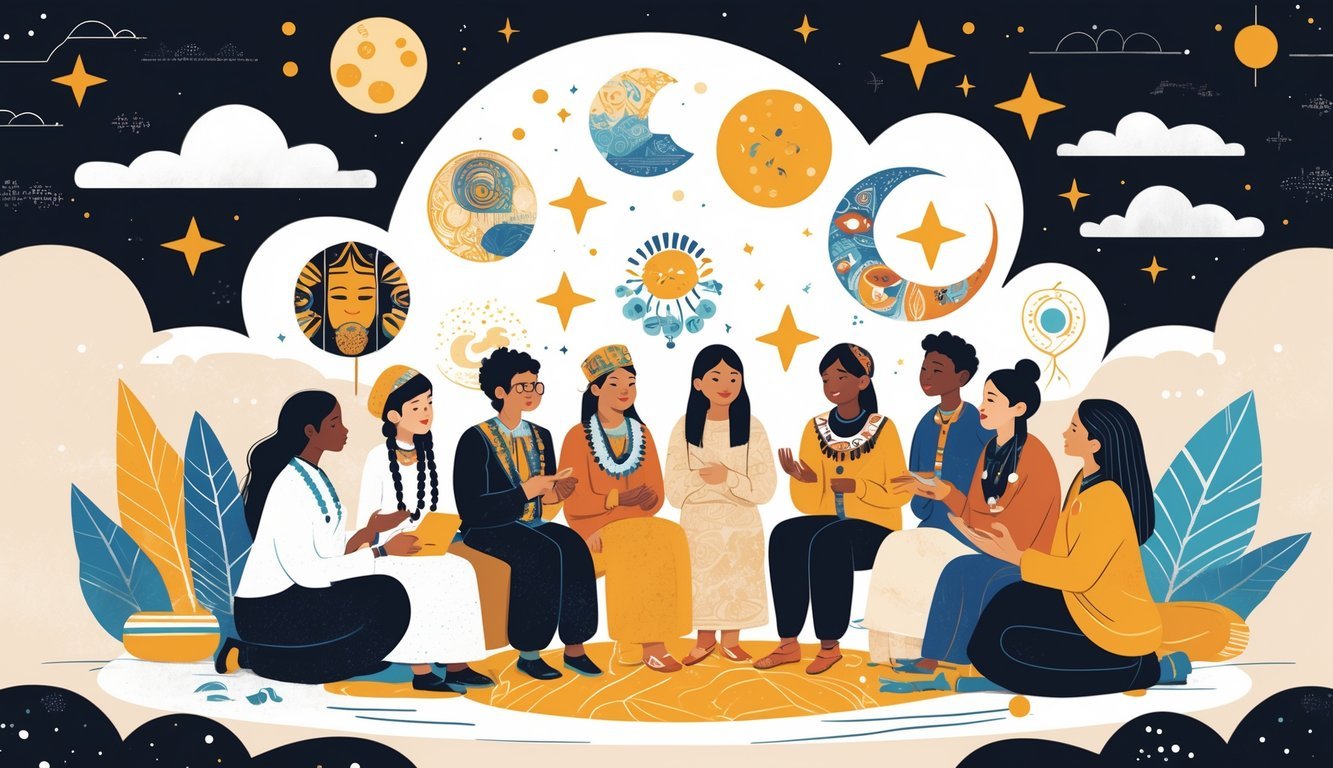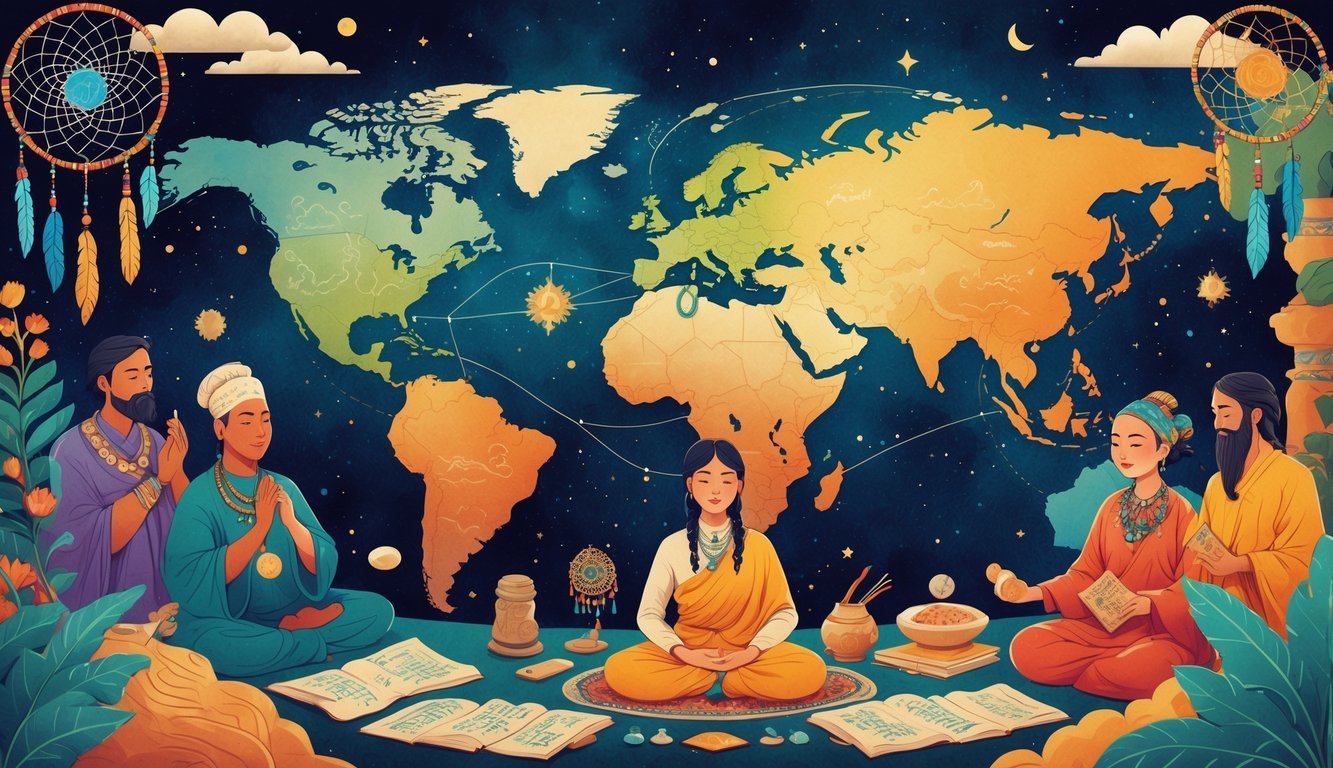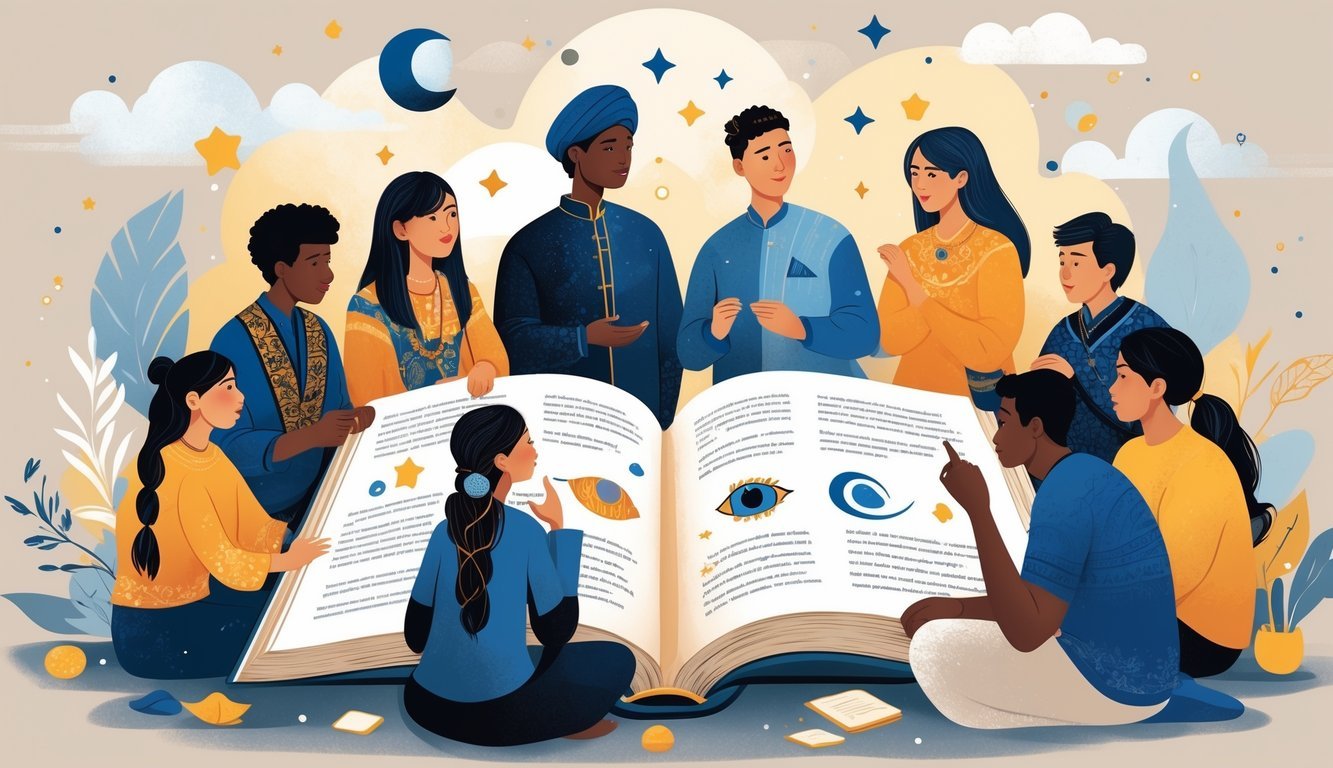PsychNewsDaily Publishers
100 Summit Drive
Burlington, MA, 01803
Telephone: (320) 349-2484
PsychNewsDaily Publishers
100 Summit Drive
Burlington, MA, 01803
Telephone: (320) 349-2484
Dreams vary widely in meaning based on cultural beliefs, reflecting individual emotions and community values, with symbols interpreted differently across societies.

Dreams can mean wildly different things depending on where you grew up or what culture shaped you. Some people see dreams as messages from ancestors or spirits. Others just treat them as clues about your own feelings or worries.
If you start looking into these cultural differences, you’ll probably see dreams in a new light—and maybe even appreciate how they reflect what different communities value most.
In some places, dreams tie closely to social life and community support. Other cultures focus more on the individual’s experience.
This variety shows dreams aren’t just random images. Who you are and the world around you shape them.
If you start digging into these differences, you’ll learn a lot about how people around the world think about their inner lives. It’s honestly pretty fascinating.
No matter where you’re from, dreams tell a story. What that story means, though, can change a lot based on your background.
Knowing this might make you a bit more curious about your own dreams. Maybe you’ll wonder how someone else from across the globe would see them.

Your dreams can mean something totally different depending on where you’re from or what you believe. What’s normal or scary in one place might seem surprising or even positive elsewhere.
This all comes from deep ideas about life, religion, feelings, and social rules.
Your beliefs about the world shape how you see your dreams. In some cultures, people treat dreams as messages from spirits or ancestors.
Other groups just see them as random brain activity. These beliefs decide how much importance you give your dreams.
For example, some folks think dreams can predict the future or warn you about danger. Others just see them as stories your mind tells itself.
Your culture’s history and daily routines influence these ideas. Even how you remember or talk about dreams changes with your cultural habits.
Religion and spirituality often guide how people make sense of dreams. Your faith might teach you that dreams come from a divine source or help you connect with higher powers.
Some religions have specific dream symbols or ideas to explain strange images or feelings. You might even find that certain spiritual beliefs treat dream experiences as personal lessons or paths to enlightenment.
Religious rituals sometimes include dream sharing or interpreting to find meaning. Spiritual ideas can add a powerful layer to your understanding of dreams that goes way beyond daily life.
Symbols in dreams don’t always mean the same thing everywhere. For instance, a black cat might be unlucky in some Asian cultures but bring good luck in parts of the West.
Colors flip too; white might mean purity in one culture, but death in another.
Here’s a quick peek at how some dream symbols can change meaning across cultures:
| Symbol | Culture 1 Meaning | Culture 2 Meaning |
|---|---|---|
| Black Cat | Bad luck (Asian cultures) | Luck or protection (Western cultures) |
| Water | Cleansing or danger | Life and renewal |
| Falling | Loss of control | Spiritual descent |
If you know your culture’s view on symbols, you’ll probably understand your dreams better.
How you feel during the day shapes your dreams, but so do your society’s rules. Some cultures expect people to hide emotions, while others encourage sharing.
This changes what kinds of dreams you get and how you react to them. If your culture values community, you might dream more about family or social conflicts.
In places where independence matters, dreams might focus on personal goals or fears. Social rules also decide if you share dreams openly or keep them private.

Dreams take on different meanings depending on where you’re from and your culture. Some groups see dreams as messages from the spirit world. Others use dreams to learn about the mind.
Your own beliefs about dreams might shift once you start seeing these different views.
In many indigenous cultures and forager communities like the Bayaka and Hadza, people often treat dreams as spiritual messages. Dreams might connect you with ancestors or nature.
These cultures sometimes use dreams to guide decisions or strengthen social bonds. Nightmares can become warnings or signs that fear and anxiety are affecting the group.
Dream sharing helps with cooperation and keeps the community in harmony. Anthropologists point out that, in these groups, dreams matter to the whole tribe—not just the individual.
In Western cultures, dream interpretation started with thinkers like Sigmund Freud and Carl Jung. You’ll find that dreams reveal your subconscious mind, hidden desires, or fears.
Freud focused on dreams showing unconscious wishes. Jung believed dreams included messages from a collective unconscious.
In Middle Eastern dream traditions, dreams often carry spiritual meanings and warnings. You might see colors or symbols interpreted differently; for example, a black cat means bad luck in some Asian and Middle Eastern views, but not in the West.
These traditions have a deep history and still shape how many people see dreams.
Today, psychologists dig into REM sleep studies to figure out how dreaming helps your brain process emotions like fear and anxiety. You can also look at how dreams reflect your personality and mental state.
After World War II, researchers paid more attention to how trauma affects dreams and nightmares.
New tech like virtual reality and social media even shapes how people think about dreams now. Psychologists often see dreams as a mix of memories, emotions, and social experiences—not just spiritual signs.
Dream analysis these days blends old cultural ideas with science for a more complete picture.

Dreams can hold different meanings depending on your culture and background. How you understand dream symbols or the role dreams play in your life may shift based on where you’re from and what you believe.
Many cultures see animals, water, or flying as important dream symbols, but the meanings can change a lot. For example, a snake might mean danger in one culture, but healing or wisdom in another.
In ancient times, people usually believed dreams were messages from gods or spirits. They used dreams to help guide decisions or try to understand the future.
Some cultures think dreams show what you’re feeling inside. Recurring symbols might hint at stress, fear, or hope, but how this works depends on cultural ideas about emotions.
Christian teachings sometimes treat dreams as signs from God. Dreams in the Bible often carry warnings or guidance for people.
In many African cultures, dreams connect you to ancestors or the spirit world. People use them to solve problems or get advice from beyond.
The words you choose and the structure of your language can shape how you remember your dreams. Your language might even influence how you talk about what happened in those dreams.
Different languages nudge people to think about their dreams in unique ways. Isn’t it interesting how language can shift your entire perspective on something as personal as dreaming?